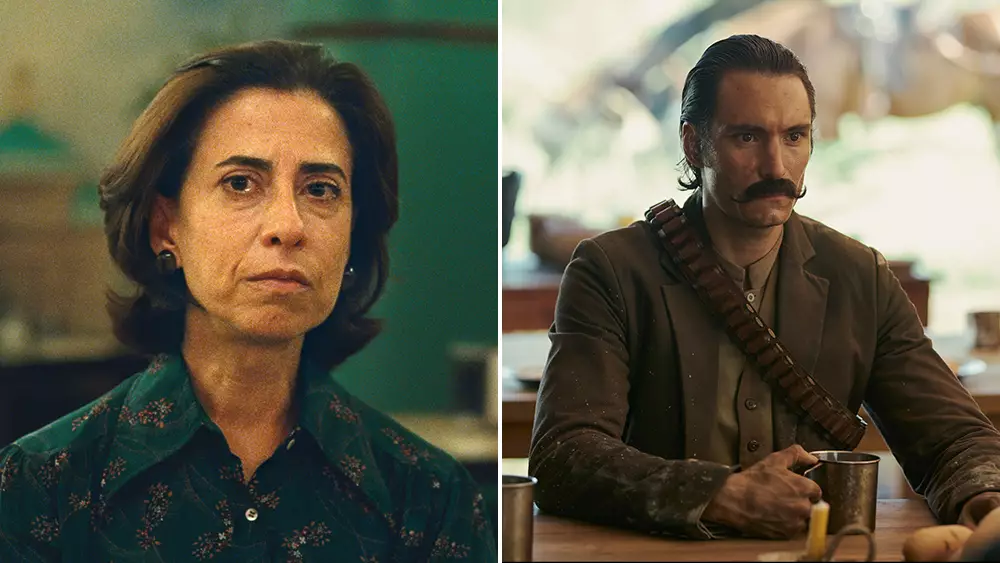The 12th edition of the Platino Awards, held in the heart of Madrid, emerged not just as an awards ceremony but as a spirited celebration of Latin culture and creativity in film and television. This gathering, honoring the pinnacle of Ibero-American filmmaking, was distinctly marked by the powerful presence of narratives that resonate with both local and global audiences. More than mere accolades, the evening served as a reminder of the cultural richness and resilience embedded in Ibero-American art. As the spotlight shone on remarkable talent, the essence of shared heritage permeated the event, offering a poignant reflection on the bond between Latin America and Spain.
Shattering Stereotypes
Winning multiple accolades, including Best Ibero-American Fiction Film, the Oscar-winning “I’m Still Here” naturally stole the show. However, it was the absence of its visionary director Walter Salles and leading lady Fernanda Torres that fueled much discussion. Notably, their absence underscored a recurring theme in the arts—often, the creators themselves can be silent while their work speaks volumes. It raises a critical point about representation; even with prestigious awards, the industry often sidelines the voices of those who truly contribute to its success in the blaze of their created narratives. The success of “One Hundred Years of Solitude” on Netflix also illuminated an essential discussion about adaptation—how stories rooted in one culture can transcend boundaries yet still face criticism regarding authenticity.
The Shimmering Future of Ibero-American Cinema
The Platino Awards provided a flourishing platform that showcased not just established talents but also emerging voices in the industry. Directors, writers, and performers such as Pedro Almodóvar, whose “The Room Next Door” beautifully clinched awards for original score and cinematography, represent the inventive spirit that fuels the arts. These accolades stimulate a burgeoning narrative within the industry; the winds of change are blowing, paving the way for a new generation of storytellers who dare to challenge traditional frameworks. Recognition of diversified storytelling methods and the inclusion of varied genres—including comedy and animation—inject energy into a cinematic landscape often marred by monotony and predictability.
Groundbreaking Acceptance and a Sisterhood Honored
One of the highlights of the evening was Eva Longoria’s moving acceptance of the Platinum of Honor Award, embodying what it means to uplift Latin representation in Hollywood. Her speech reverberated with a sense of unity and homage to cultural roots—a vital reminder of the intrinsic ties that bind Latin America with Spain. Longoria’s passionate acknowledgment of her Mexican-American identity articulated a narrative of pride and empowerment. It posed an essential question; as we celebrate these influential figures, are we also recognizing the nuances within their stories that challenge prevalent stereotypes and discriminatory practices in Hollywood?
As she remarked on her enduring dream of honoring Hispanic women and fostering a connection between cultures, her words resonated deeply. The riveting applause from the audience demonstrated that these narratives are not just personal; they are universal. They reflect the stories of countless individuals striving to forge their identity amid a landscape that often overlooks them.
A Call for the Future
While the celebration of achievements is commendable, the Platino Awards also posed a fundamental inquiry into the industry’s path forward. The question arises: how can the successes of these award-winning projects be leveraged to drive genuine inclusivity and diverse storytelling? The night undoubtedly celebrated many luminous talents, but the implications of such accolades demand critical reflection on what the future holds for Latino creators and stories.
Industry leaders, filmmakers, and audiences alike must work towards fostering a narrative paradigm where every story finds its light and each voice echoes in the annals of cinema history. By amplifying brilliant yet underrepresented voices, we have the potential to shift the cultural landscape and create a richer tapestry that honors the depth of Latin artistry across the globe.

